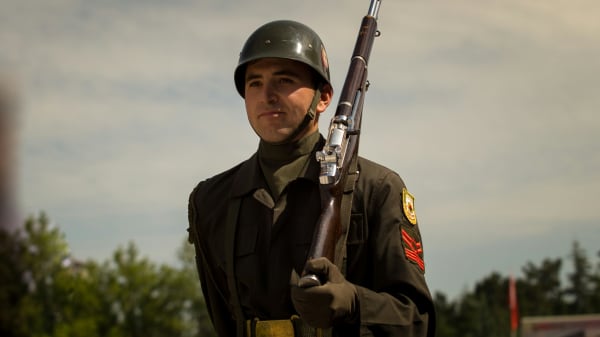The world is a global village, and the military, like every other profession, has recognized this to some extent. Therefore, cultivating cultural competence has become a critical aspect of contemporary military training. But what exactly does Cultural Training in the Military entail, and why is it crucial? This article aims to explore this topic in-depth, providing valuable insights into the role and significance of cultural competence in military training.
The Concept of Cultural Competence in Military Training
At its core, Cultural Training in the Military, often referred to as simply cultural competence, revolves around fostering an understanding and appreciation of different cultures among military personnel. This understanding is crucial in promoting peaceful and effective interactions in areas of deployment, especially in foreign countries, as soldiers are tasked with interactions in culturally diverse environments.
Military organizations worldwide are developing cultural training programs aimed at teaching their personnel about various cultures — their traditions, customs, norms, and religions. Here are some attributes that the acquisition of cultural competence could include:
- Learning foreign languages.
- Studying local customs, traditions, and values.
- Understanding legal structures and systems of governance.
- Gaining exposure to economic systems and structures.
- Practicing cultural do's and don'ts in simulated environments.
The Importance of Cultural Training in the Military
Why invest resources in Cultural Training in the Military? The reasons are multifaceted and extremely strategic. Below are central factors that highlight its importance:
1. Promotes Peaceful Relations: Being aware of and respecting a host country's culture can greatly help in building trust and peaceful relationships. This reduces conflicts and misunderstandings that may be due to cultural differences.
2. Enhances Communication: Effective communication is vital in any military operation. By understanding a community's language and non-verbal cues, soldiers can effectively relay and receive messages, enhancing the likelihood of successful missions.
3. Boosts Cooperation: Understanding and respecting a local culture, troops are more likely to gain the cooperation of the local populace in their missions.
4. Fosters Psychological Preparedness: By being familiar with a new culture beforehand, soldiers are mentally and emotionally prepared for their deployment, reducing culture shock and enhancing performance.
Developing Cultural Competence in Military Training
How then, should military organizations go about incorporating cultural competence in their training regimes? Below are some strategies currently in use:
1. Embedding Culture Training Across All Levels: To instill cultural competence, it needs to be integrated into all ranks of the military, with each level receiving contextual training.
2. Collaborative Training Approaches: Military organizations could collaborate with cultural institutions or universities to create relevant and dynamic cultural training programs.
3. Practical Learning: Aside from taking courses or attending lectures, soldiers should be given opportunities to immerse themselves in the cultures they're studying. This could involve language immersion programs, cultural exchanges, or even deploying simulated environments for training.
4. Feedback and Evaluation: Like with any training program, having rigorous evaluation and feedback mechanisms are essential in measuring effectiveness and implementing improvements.
Conclusion
Cultural competence's role in military training cannot be underestimated. From fostering peaceful international relations to enabling more effective on-the-ground operations, the benefits of integrating Cultural Training in the Military are manyfold. More military organizations should dedicate effort and resources towards this essential aspect of contemporary warfare, enhancing their effectiveness and global reputation in the process.
Cultural Training in the Military is an ongoing learning process. As the world continues to evolve, training programs must adapt to reflect current cultural dynamics. Ultimately, cultural competence contributes to a more effective, globally-responsive military – key in today's increasingly interconnected world.




